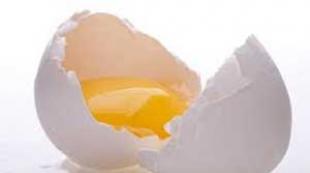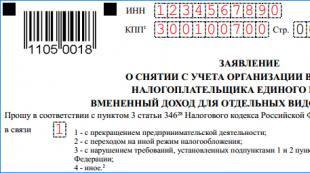It seemed to me that the autumn sad month. Ivan Bunin - late at night
Ivan Bunin
late at night
Was it a dream or an hour of the mysterious life of the night, which is so much like a dream? It seemed to me that the sad autumn month had been floating above the earth for a long time, that the hour had come for rest from all the lies and bustle of the day. It seemed that all of Paris, to the last beggarly corner, fell asleep. I slept for a long time, and finally the dream slowly departed from me, like a caring and unhurried doctor who had done his job and left the patient already when he sighed deeply and, opening his eyes, smiled a shy and joyful smile of returning to life. Waking up, opening my eyes, I saw myself in a quiet and bright realm of night.
I silently walked on the carpet in my room on the fifth floor and went to one of the windows. I looked first into the room, large and full of light twilight, then into the upper glass of the window for a month. The moon then bathed me in light, and, raising my eyes upward, I gazed into its face for a long time. The moonlight, passing through the whitish lace curtains, softened the twilight in the back of the room. You couldn't see the moon from here. But all four windows were brightly lit, as well as what was near them. The moonlight fell from the windows in pale blue, pale silver arches, and in each of them was a smoky shadow cross that gently broke on the illuminated armchairs and chairs. And in an armchair by the last window sat the one I loved, all in white, like a girl, pale and beautiful, tired of everything that we had experienced and that so often made us evil and merciless enemies.
Why didn't she sleep that night too?
Avoiding looking at her, I sat down at the window, next to her... Yes, it was late - the entire five-story wall of the opposite houses was dark. The windows there blacken like blind eyes. I looked down - the narrow and deep corridor of the street was also dark and empty. And so it is throughout the city. Only the pale shining moon, slightly tilted, rolls and at the same time remains motionless among the smoky running clouds, awake alone over the city. He looked me straight in the eyes, bright, but a little damaged and therefore sad. Clouds of smoke drifted past him. For about a month they were light and melted, then they thickened, and behind the crest of the roofs they passed in a completely gloomy and heavy ridge ...
I haven't seen a moonlit night for a long time! And now my thoughts again returned to the distant, almost forgotten autumn nights that I once saw in childhood, among the hilly and meager steppe. central Russia. There the moon looked under my native roof, and there I first recognized and fell in love with his meek and pale face. I mentally left Paris, and for a moment the whole of Russia seemed to me, as if from a hill I looked at a huge lowland. Here is the golden-shining desert expanse of the Baltic Sea. Here are the gloomy countries of pines, leaving in the twilight to the east, here are rare forests, swamps and copses, below which, to the south, endless fields and plains begin. Rails slide through the forests for hundreds of miles railways, gleaming dully at the month. Sleepy multi-colored lights flicker along the tracks and one by one run away to my homeland. In front of me are slightly hilly fields, and among them is an old, gray landowner's house, dilapidated and meek at the same time. moonlight… Is it really the same month that once looked into my children's room, which later saw me as a young man and which now mourns with me about my failed youth? It was he who reassured me in the bright realm of the night...
- Why are you not sleeping? I heard a timid voice.
And the fact that she was the first to turn to me after a long and stubborn silence stung painfully and sweetly in my heart. I answered quietly:
– I don’t know… And you?
And again we were silent for a long time. The moon had noticeably lowered itself to the rooftops and was already peering deeply into our room.
- Sorry! I said walking up to her.
She didn't answer and covered her eyes with her hands.
I took her hands and pulled them away from her eyes. Tears rolled down her cheeks, and her eyebrows were raised and trembled like those of a child. And I knelt down at her feet, pressed my face against her, not holding back either my own or her tears.
"But are you to blame?" she whispered embarrassedly. "Isn't it all my fault?"
And she smiled through her tears with a joyful and bitter smile.
And I told her that we were both guilty, because we both violated the commandment of joy, for which we must live on earth. We loved each other again, as only those who suffered together, erred together, but met rare moments of truth together can love. And only a pale, sad month saw our happiness ...
1. Snow was slowly falling outside the window, and a snowy, clear light lay on the walls of the room (A. Tolstoy). 2. Monthly light fell from the windows in pale blue, pale silver arches, and in each of them there was a smoky shadow cross, gently breaking on the illuminated armchairs and chairs (Bunin). 3. The sun set, and golden dust stood over the city (A. Tolstoy). 4. The train started, and she stopped, looking with wide blue eyes at the cars flashing along the platform (Bunin). 5. It was quiet in the garden, only the bird sometimes tossed and fell asleep again in the linden branches, and the tree frogs gently groaned, and the fish splashed in the pond (A. N. Tolstoy).
Ex. 54. Write the text, insert the missing letters. In complex sentences, highlight the grammatical bases. Make a diagram of the 5th sentence.
It was from .. the middle of March. In .. sleep this year stood out .. was even, friendly. From time to time. We have already ridden in k..forests along roads covered with thick mud. Snow still lay in snowdrifts in deep forests and in so ..nist ..enemies, but it settled on the fields, became loose and dark, and from (under) it (in some) places more ..mi bald ..we are still. .blacked out, greasy, steamed on the so..nce earth. B.. the cut buds swelled, and the lambs on the willows from white became fat, fluffy and huge. The willow has blossomed.
Bees ..ly flew out .. from the streets for the first bribe, and in the forest villages ro ..ko showed ..the first snowdrops.
We (not) .. eagerly waited for the summer of the old signs.. lumpy wells.
(According to A. Kuprin.)
§ 49. Test tasks
1. What scheme reflects the structure of a compound sentence?
a) or , or .
b) , (what...).
in) ; .
d) (if...), .
2. In what case are unions given that can connect parts of a compound sentence?
a) what if, when
b) but, however
c) because, due to the fact that, because
d) how, although
3. In what case are parts of a compound sentence connected by a connecting union?
a) Mitya slept with uncovered windows, and the garden and the moon looked through them all night.
b) It was foggy in the morning, but by breakfast the weather cleared up.
c) Either a corncrake will start screaming behind a neighboring bush, then a pood fish will strike with a cannon shot.
d) I don’t want to think about anything, or thoughts and memories wander, vague, unclear, like a dream.
4. In what case are the parts of a compound sentence connected by a disjunctive union?
a) The sea shone, everything was in bright light, and the waves beat menacingly against the stone.
b) Only the heart beats, but the song sounds, but the string quietly rumbles.
c) Neither the viburnum grows between them, nor the grass turns green.
d) You either listen or let others listen.
5. In what case are parts of a compound sentence connected by an adversative conjunction?
a) The root of the doctrine is bitter, but its fruits are sweet.
b) Either the bird is flying, or the rain is making noise.
c) Her face was pale, her slightly parted lips also turned pale.
d) This artist is talented, and yet his paintings do not touch you.
6. In what case are parts of a compound sentence connected by a double connecting union?
a) Bunin was incredibly curious, and he always needed to know the life around him in every detail.
b) But with bluebells, the calyx always leans towards the ground, and with these unknown flowers, the calyxes stood, stretched upwards.
c) The inspector walked around the classroom with concentrated anger, not saying a word, and that was bad form.
d) Not only I could not endure this circus performance, but my sister looked at the trained animals with longing, resentment and pity.
WORKSHOP ON PUNCTUATION
§ 50. Punctuation marks in a compound sentence
In a compound sentence, a comma is placed between the predicative parts: Here a slight whistle rang out, and Dubrovsky fell silent.;Oleg chuckled, but his brow and eyes clouded with thought(Pushkin).
The comma is not put:
- if simple sentences that are part of a compound sentence and connected by a union have and
, a common minor term: Soon after sunrise, a cloud came up and a short rain splashed.(Pushkin);
- if the union and
combines two denominative sentences: Frost and sun...(Pushkin).
If the second predicative part contains an unexpected addition or a sharp opposition, then it is preceded by dash. For example: He will give a sign - and everyone laughs; More pressure - and the enemy runs(Pushkin).
Ex. 55. Explain the punctuation marks in the following compound sentences. Highlight the unions that connect the parts of the sentences.
1. The plane was gaining altitude, and a large city with squares and rectangles of quarters was rapidly decreasing before our eyes (Azhanov). 2. He appeared at our construction site only six months ago, and we immediately became friends (Chakovsky). 3. The hot sun longingly looked for the wind, but there was no wind (Turgenev). 4. Either I did not understand myself, then the world did not understand me (Lermontov). 5. Warm summer rain fell all night, and by morning the air was fresh, it smelled strongly of lilacs, and I wanted to run out into the garden as soon as possible (Nagibin). 6. He never cried, but at times a wild stubbornness came over him (Turgenev).
Ex. 56. Specify in which cases the union and used in compound sentences, and in some - in sentences with homogeneous members. Put the appropriate punctuation marks.
1. Mountains stretched on the right side of these meadows and the Dnieper (Gogol) was burning and darkening in a slightly noticeable distance. 2. It became dark and the street gradually became empty (Chekhov). 3. We walked towards the sea and soon found ourselves on a rocky ledge hanging over the abyss (Nagibin). 4. Cranes fly away and low autumn clouds cover the sky (Soloukhin). 5. The summer was dry and hot, and the glaciers in the mountains began to melt already in the first days of June (Babel).
Ex. 57. Put the necessary punctuation marks.
1. By evening it got colder and the puddles were covered with thin ice. 2. In early April, starlings were already making noise and yellow butterflies were flying in the garden (Chekhov). 3. Dark rain clouds were moving in from the east and moisture was sipping from there. 4. Sunrise rose and fell again and the horse was tired of galloping in the steppes (Svetlov). 5. Clouds float in the blue sky and migratory birds rush by (Prishvin). 6. Soon the whole garden, warmed by the sun, caressed, came to life and dew drops like diamonds sparkled on the leaves, and the old long-running garden this morning seemed so young and smart (Chekhov). 7. The swallows disappeared, and yesterday at dawn all the rooks were flying, and like a net they flickered over that mountain (Fet).
Ex. 58. Write with the missing punctuation marks. Highlight the grammatical bases in compound sentences.
1. The memory of the past of Russia is kept not only by the manuscripts of ancient authors, ancient burial mounds and settlements, but also by old place names hide some historical facts. 2. KamAZ is known as a supplier of heavy dump trucks and this fact allows it to actively use its trademark. 3. The Trinity-Sergius Lavra was founded in the 14th century and the monks still maintain the tradition of hospitality. 4. A strong cyclone hit Sakhalin, but communication with the mainland was not interrupted.
§ 51. Test tasks
1. In what case is the union and connects parts of a compound sentence?
a) The corridors and the large room stood bare and empty and seemed unusually spacious and bright.
b) Mela blizzard-blizzard and chilled the blood.
c) It is getting fresher, and the mountains, blown by the sea air, take on purple tones.
d) Only thoughts rush about, and fight, and welcome that restlessness.
2. In which case before the union and do you need a comma?
a) Blue stars shine high in the sky and a milky white moon shines.
b) A horn blows in the yard and dogs howl to different voices.
c) The windows to the garden are raised and a cheerful autumn coolness blows from there.
d) Silence and solitude.
3. In which case before the union and do you need a comma?
a) The sun has set and it is getting dark.
b) It was freezing and behind the snowy fields, in the west, dimly shining through the clouds, the dawn turned yellow.
c) And the forests would not grow without the sun and the bread in the fields would not ripen.
d) It is blowing cold and snowing from the window.
4. In which case are punctuation marks incorrectly placed in the sentence?
a) Love knows no fear, and rejects fear, and rises from the dust.
b) And why is this strange night, and why is this sleepy ship standing in a sleepy sea?
c) It sweeps and there is no end to the blizzard.
d) The snow melted and washed away the trail.
5. In which case are punctuation marks incorrectly placed in the sentence?
a) Petersburg Street aroused in me a thirst for spectacles, and the very architecture of the city inspired me with a kind of childish imperialism.
b) The comedy was staged under his direction, and he himself rehearsed with the actors.
c) A lot was said about Pushkin and something was said, little was said about Lermontov and nothing was said.
d) Someone gives me a hand, and someone smiles.
Complex sentence
Theoretical information and language analysis
§ 52. Complex sentence and its grammatical features
complex complex sentences are called in which one simple sentence is subordinate to another in meaning and is connected with it by a subordinating union or allied word.
A complex sentence (CSS) can consist of two or more simple sentences, one of which is the main one, and the rest are subordinate clauses. The subordinate clause can come before the main clause, after it, or even in the middle. For example: Through the window I saw a big black bird perched on a maple branch in the garden.;Every time autumn approached, conversations began that much in nature is not arranged the way we would like.(Paustovsky).
Subordinate clauses serve to explain either one member in the main clause: Tell me that fairy tale that mother used to tell, or the whole main sentence as a whole:
Subordinate clauses are attached to the main clause with subordinating unions expressing various meanings, or using allied words. Unlike unions, allied words not only connect subordinate clauses with the main one, but are also members subordinate clauses.
It is usually not difficult to determine which member of the sentence is the allied word.
For example:
In these sentences, allied words where
and why
are circumstances.
The union word requires a special comment which the
. It can act as different members of the sentence: subject, predicate, inconsistent definition, circumstance and addition. To determine syntactic function allied word which the, you need to find out which word of the main clause it replaces, substitute it for the allied word and determine which member of the subordinate clause it is.
For example: Village,which
located on the banks of the river, very beautiful. In this sentence, the conjunction word which refers to a noun village. If you substitute the word village into a subordinate clause, you get: Village
located on the coast. In this sentence, the word village performs the function of the subject, therefore, in the subordinate part of the original sentence, the allied word which is also subject.
Compare: Lake,
we approached, it turned out to be clean and deep. - I met a man
have not seen for a long time.
Some of the allied words turn out to be homonymous with unions, that is, in some cases they act as unions, and in others - as allied words.
To distinguish allied words and unions, it should be remembered that: 1) allied words what
and how
logical stress usually falls; 2) one can pose a semantic question to them and determine which member of the sentence they are; 3) they cannot be removed from the sentence without violating the meaning, but they can be replaced by synonymous allied words.
With.
Compare: I knew our house was in need of repair. - I knew our house was in need of repair.
With. With.
House,what
on the contrary, it needs renovation. The house opposite is in need of repair.
When distinguishing between an allied word and a union when
should be based on the meaning of subordinate parts. In relative clauses and often in clauses of explanatory clauses when is a union word, in all other cases when- union:

Means of communication of the main and subordinate parts in the NGN
Subordinating conjunctions
Simple: what, so that, how, when, while, as if, as if, if, exactly, barely, only, although, because and etc.
Composite: because, since, because, in view of the fact that, due to the fact that and etc.
allied words
Relative pronouns: what, who, what, which, what, whose, how much and etc.
Pronoun adverbs: where, how, when, where, from where, why and etc.
The words what, how, when in NGN, there can be both unions and allied words.
Indicative words can sometimes be used in the main part of NGN that, such, all, everyone, no one, there, then and others. The role of demonstrative words in the organization of NGN is not the same.
First, they may be structurally necessary (a sentence with a given clause cannot be constructed without them). For example: I am the one no one loves. The inclusion of correlative words necessary for the structure of the sentence is mandatory for the block diagram of such NGN:

Secondly, correlative words can be optional, their role in the sentence in this case is intensifying-excretory (correlative words can be omitted without loss of meaning):
With. With.
He remembered the manwhich the
was visiting Petrov.

Demonstrative words are members of the main clause.
§ 53. Types of complex sentences
According to the meaning and structure, NGNs are divided into three main groups. Adverbs in these complex sentences correlate with three groups of minor members of the proposal: definitions, additions and circumstances * .
Types of subordinate clauses
1. Determinants(including pronominal-defining) | What questions are answered? whose? Who exactly? what exactly? and refer to the noun or pronoun in the main part; join most often with the help of allied words which, which, whose, where etc. and unions what, to, as if and etc. | The native places where I grew up will forever remain in my heart; He who does nothing will achieve nothing; She looked with such a look that everyone fell silent. |
2. Explanatory | They answer questions of indirect cases and usually refer to the predicate in the main part; join with alliances what, what, if, if, if etc. and allied words where, where, how much, which and etc. | I soon realized that I was lost; It seemed to him that everyone around him rejoiced at his happiness. |
3. Circumstantial: | ||
mode of action, measure and degree | Answer questions how? how? to what extent? in what degree? how much? and usually refer to one word in the main clause; join with alliances what, to, as if, exactly and allied words how, how much, how much. | |
time | Answer questions when? From what time? until what time? how long? and usually refer to the entire main sentence; join with alliances when, while, as, while, as long as, while, as long as, after, barely, since, just, a little, before, as soon as, just, just, just, just, just a little, before, before. | Until the rain stops, we will have to stay at home. |
places | Answer questions where? where? where? and usually refer to the entire main sentence; join with allied words where, where, from where. | People go to folklore practice where folk traditions of song and tale are still alive. |
goals | Answer questions why? for what purpose? and usually refer to the entire main sentence; join with alliances so that, in order to, so that, so that, so that, if only, yes, if only. | In order not to get lost, we went to the path. |
the reasons | Answering questions why? from what? for what reason? and usually refer to the entire main sentence; join with alliances because, because, due to the fact that, due to the fact that, due to the fact that, due to the fact that, then that, since, for, good, because, due to the fact that, especially since. | Because the candle burned weakly, the room was almost dark. |
terms | Answer the question under what condition? and usually refer to the entire main sentence; join with alliances if, if, when, if, if, how, once, how soon, whether ... whether. | If the weather does not improve within a day, the trip will have to be rescheduled. |
concessions | Answer questions no matter what? contrary to what? and usually refer to the entire main sentence; join with alliances although, despite the fact that, despite the fact that, let and combinations of pronominal words with a particle neitherno matter where, no matter how much, no matter where. | Despite the fact that it was already well after midnight, the guests did not disperse; No matter how the tree rots, it keeps growing. |
comparisons | Answer questions like what? like who? than what? than who? and usually refer to the entire main sentence; join with alliances as, as, as, as, as if, exactly, as if, as if, as if. | Birch branches stretch towards the sun, as if stretching out their hands to it. |
consequences | Answer questions about why what happened? what follows from this? and usually refer to the entire main sentence; join with union so. | The summer was not very hot, so the mushroom harvest should be good. |
Subordinate explanatory clauses can be attached to the main clause with a particle whether used in the meaning of the union. For example: He didn't know if tomorrow would come. union-particle whether can serve to convey an indirect question: They asked if we would go with them.
REMEMBER: the main question for determining the type of subordinate clauses is the semantic question. Conjunctions and allied words can add additional shades of meaning to NGN. For example: The village where Eugene missed was a lovely corner. This is a complex sentence with an attributive clause, which has an additional spatial connotation of meaning.
§ 54. A complex sentence with several subordinate clauses
NGN can have not one, but several subordinate clauses.
Based on what the clauses refer to and how they relate to each other, there are three types of NGN with several clauses.
1. SPP with sequential submission adnexal. With such subordination, the first clause refers to the main clause, the second to the first clause, the third to the second clause, etc. The specificity of the clauses is that each of them is a clause in relation to the previous and main in relation to subsequent.
For example: Often in autumn I would closely watch falling leaves to catch that imperceptible split second when a leaf separates from a branch and begins to fall to the ground.(Paustovsky).

2. SPP with uniform subordination adnexal. With this subordination, all subordinate clauses refer to one word in the main clause or to the entire main clause, answer the same question, and belong to the same type of subordinate clauses.
For example: At the end of May, the young bear was drawn to her native places, where she was born and where there were months of childhood (Chernov).

3. SPP with heterogeneous subordination subordinate (or with parallel subordination). With such subordination, the subordinate clauses include:
a) to different words the main sentence or one part to the whole main, and the other to one of its words;
b) to one word or to the whole main sentence, but they answer different questions and are different types adjunctive proposals.
For example: From the world called the nursery, the door leads to a space where they dine and drink tea.(Chekhov).

There are also SPPs with combined type of subordination adjunctive proposals. For example: When the britzka drove out of the yard, he (Chichikov) looked back and saw that Sobakevich was still standing on the porch and seemed to be looking closely, wanting to know where the guest would go.(Gogol).
This is a complex sentence with parallel and sequential subordination of subordinate clauses.

Ex. 59. Rewrite with missing punctuation marks. Indicate the grammatical basis of each sentence. Make diagrams.
late at night
Was it a dream or an hour of the mysterious life of the night, which is so much like a dream? It seemed to me that the sad autumn month had been floating above the earth for a long time, that the hour had come for rest from all the lies and bustle of the day. It seemed that all of Paris, to the last beggarly corner, fell asleep. I slept for a long time, and finally the dream slowly departed from me, like a caring and unhurried doctor who had done his job and left the patient already when he sighed deeply and, opening his eyes, smiled a shy and joyful smile of returning to life. Waking up, opening my eyes, I saw myself in a quiet and bright realm of night.
I silently walked on the carpet in my room on the fifth floor and went to one of the windows. I looked first into the room, large and full of light twilight, then into the upper glass of the window for a month. The moon then bathed me in light, and, raising my eyes upward, I gazed into its face for a long time. The moonlight, passing through the whitish lace curtains, softened the twilight in the back of the room. You couldn't see the moon from here. But all four windows were brightly lit, as well as what was near them. The moonlight fell from the windows in pale blue, pale silver arches, and in each of them was a smoky shadow cross that gently broke on the illuminated armchairs and chairs. And in an armchair by the last window sat the one I loved - all in white, like a girl, pale and beautiful, tired of everything that we had experienced and that so often made us evil and merciless enemies.
Why didn't she sleep that night too?
Avoiding looking at her, I sat down at the window, next to her... Yes, it was late - the entire five-story wall of the opposite houses was dark. The windows there blacken like blind eyes. I looked down - the narrow and deep corridor of the street was also dark and empty. And so it is throughout the city. Only the pale shining moon, slightly tilted, rolls and at the same time remains motionless among the smoky running clouds, awake alone over the city. He looked me straight in the eyes, bright, but a little damaged and therefore sad. Clouds of smoke drifted past him. For about a month they were light and melted, then they thickened, and behind the crest of the roofs they passed in a completely gloomy and heavy ridge ...
I haven't seen the month night for a long time! And now my thoughts again returned to the distant, almost forgotten autumn nights that I once saw in my childhood, among the hilly and meager steppe of central Russia. There the moon looked under my native roof, and there I first recognized and fell in love with his meek and pale face. I mentally left Paris, and for a moment the whole of Russia seemed to me, as if from a hill I looked at a huge lowland. Here is the golden-shining desert expanse of the Baltic Sea. Here are the gloomy countries of pines, leaving in the dusk to the east, here are rare forests, swamps and copses, below which, to the south, endless fields and plains begin. Railroad rails glide through the forests for hundreds of versts, gleaming dully in the moonlight. Sleepy multi-colored lights flicker along the tracks and one by one run away to my homeland. In front of me are slightly hilly fields, and among them is an old, gray landowner's house, dilapidated and meek in the moonlight ... Is it really the same moon that once looked into my children's room, which saw me later as a young man and which is now sad together with me about my failed youth? It was he who reassured me in the bright realm of the night...
Why are you not sleeping? I heard a timid voice.
And the fact that she was the first to turn to me after a long and stubborn silence stung painfully and sweetly in my heart. I answered quietly:
I don't know... And you?
And again we were silent for a long time. The moon had noticeably lowered itself to the rooftops and was already peering deeply into our room.
Sorry! I said walking up to her. She didn't answer and covered her eyes with her hands.
I took her hands and pulled them away from her eyes. Tears rolled down her cheeks, and her eyebrows were raised and trembled like those of a child. And I knelt down at her feet, pressed my face against her, not holding back either my own or her tears.
But are you to blame? she whispered embarrassedly. - Isn't it all my fault?
And she smiled through her tears with a joyful and bitter smile.
And I told her that we were both guilty, because we both violated the commandment of joy, for which we must live on earth. We loved each other again, as only those who suffered together, erred together, but met rare moments of truth together can love. And only a pale, sad month saw our happiness ...
Was it a dream or an hour of the mysterious life of the night, which is so much like a dream? It seemed to me that the sad autumn month had been floating above the earth for a long time, that the hour had come for rest from all the lies and bustle of the day. It seemed that all of Paris, to the last beggarly corner, fell asleep. I slept for a long time, and finally the dream slowly departed from me, like a caring and unhurried doctor who had done his job and left the patient already when he sighed deeply and, opening his eyes, smiled a shy and joyful smile of returning to life. Waking up, opening my eyes, I saw myself in a quiet and bright realm of night.
I silently walked on the carpet in my room on the fifth floor and went to one of the windows. I looked first into the room, large and full of light twilight, then into the upper glass of the window for a month. The moon then bathed me in light, and, raising my eyes upward, I gazed into its face for a long time. The moonlight, passing through the whitish lace curtains, softened the twilight in the back of the room. You couldn't see the moon from here. But all four windows were brightly lit, as well as what was near them. The moonlight fell from the windows in pale blue, pale silver arches, and in each of them was a smoky shadow cross that gently broke on the illuminated armchairs and chairs. And in an armchair by the last window sat the one I loved, all in white, like a girl, pale and beautiful, tired of everything that we had experienced and that so often made us evil and merciless enemies.
Why didn't she sleep that night too?
Avoiding looking at her, I sat down at the window, next to her... Yes, it was late - the entire five-story wall of the opposite houses was dark. The windows there blacken like blind eyes. I looked down - the narrow and deep corridor of the street was also dark and empty. And so it is throughout the city. Only the pale shining moon, slightly tilted, rolls and at the same time remains motionless among the smoky running clouds, awake alone over the city. He looked me straight in the eyes, bright, but a little damaged and therefore sad. Clouds of smoke drifted past him. For about a month they were light and melted, then they thickened, and behind the crest of the roofs they passed in a completely gloomy and heavy ridge ...
There the moon looked under my native roof, and there I first recognized and fell in love with his meek and pale face. I mentally left Paris, and for a moment the whole of Russia seemed to me, as if from a hill I looked at a huge lowland. Here is the golden-shining desert expanse of the Baltic Sea. Here are the gloomy countries of pines, leaving in the twilight to the east, here are rare forests, swamps and copses, below which, to the south, endless fields and plains begin. Railroad rails glide through the forests for hundreds of versts, gleaming dully in the moonlight. Sleepy multi-colored lights flicker along the tracks and one by one run away to my homeland. In front of me are slightly hilly fields, and among them is an old, gray landowner's house, dilapidated and meek in the moonlight ... Is it really the same moon that once looked into my children's room, which saw me later as a young man and which is now sad together with me about my failed youth? It was he who reassured me in the bright realm of the night...
- Why are you not sleeping? I heard a timid voice.
And the fact that she was the first to turn to me after a long and stubborn silence stung painfully and sweetly in my heart. I answered quietly:
– I don’t know… And you?
And again we were silent for a long time. The moon had noticeably lowered itself to the rooftops and was already peering deeply into our room.
- Sorry! I said walking up to her. She didn't answer and covered her eyes with her hands.
I took her hands and pulled them away from her eyes. Tears rolled down her cheeks, and her eyebrows were raised and trembled like those of a child. And I knelt down at her feet, pressed my face against her, not holding back either my own or her tears.
"But are you to blame?" she whispered embarrassedly. "Isn't it all my fault?"
And she smiled through her tears with a joyful and bitter smile.
And I told her that we are both to blame, because we both violated the commandment of joy, for which we must live on earth. We loved each other again, as only those who suffered together, erred together, but met rare moments of truth together can love. And only a pale, sad month saw our happiness ...
Was it a dream or an hour of the mysterious life of the night, which is so much like a dream? It seemed to me that the sad autumn month had been floating above the earth for a long time, that the hour had come for rest from all the lies and bustle of the day. It seemed that all of Paris, to the last beggarly corner, fell asleep. I slept for a long time, and finally the dream slowly departed from me, like a caring and unhurried doctor who had done his job and left the patient already when he sighed deeply and, opening his eyes, smiled a shy and joyful smile of returning to life. Waking up, opening my eyes, I saw myself in a quiet and bright realm of night.
I silently walked on the carpet in my room on the fifth floor and went to one of the windows. I looked first into the room, large and full of light twilight, then into the upper glass of the window for a month. The moon then bathed me in light, and, raising my eyes upward, I gazed into its face for a long time. The moonlight, passing through the whitish lace curtains, softened the twilight in the back of the room. You couldn't see the moon from here. But all four windows were brightly lit, as well as what was near them. The moonlight fell from the windows in pale blue, pale silver arches, and in each of them was a smoky shadow cross that gently broke on the illuminated armchairs and chairs. And in an armchair by the last window sat the one I loved - all in white, like a girl, pale and beautiful, tired of everything that we had experienced and that so often made us evil and merciless enemies.
Why didn't she sleep that night too?
Avoiding looking at her, I sat down at the window, next to her... Yes, it was late - the entire five-story wall of the opposite houses was dark. The windows there blacken like blind eyes. I looked down - the narrow and deep corridor of the street was also dark and empty. And so it is throughout the city. Only the pale shining moon, slightly tilted, rolls and at the same time remains motionless among the smoky running clouds, awake alone over the city. He looked me straight in the eyes, bright, but a little damaged and therefore sad. Clouds of smoke drifted past him. For about a month they were light and melted, then they thickened, and behind the crest of the roofs they passed in a completely gloomy and heavy ridge ...
I haven't seen a moonlit night for a long time! And now my thoughts again returned to the distant, almost forgotten autumn nights that I once saw in my childhood, among the hilly and meager steppe of central Russia. There the moon looked under my native roof, and there I first recognized and fell in love with his meek and pale face. I mentally left Paris, and for a moment the whole of Russia seemed to me, as if from a hill I looked at a huge lowland. Here is the golden-shining desert expanse of the Baltic Sea. Here are the gloomy countries of pines, leaving in the dusk to the east, here are rare forests, swamps and copses, below which, to the south, endless fields and plains begin. Railroad rails glide through the forests for hundreds of versts, gleaming dully in the moonlight. Sleepy multi-colored lights flicker along the tracks and one by one run away to my homeland. In front of me are slightly hilly fields, and among them is an old, gray landowner's house, dilapidated and meek in the moonlight ... Is it really the same moon that once looked into my children's room, which saw me later as a young man and which is now sad together with me about my failed youth? It was he who reassured me in the bright realm of the night...
Why are you not sleeping? I heard a timid voice.
And the fact that she was the first to turn to me after a long and stubborn silence stung painfully and sweetly in my heart. I answered quietly:
I don't know... And you?
And again we were silent for a long time. The moon had noticeably lowered itself to the rooftops and was already peering deeply into our room.
Sorry! I said walking up to her.
She didn't answer and covered her eyes with her hands.
I took her hands and pulled them away from her eyes. Tears rolled down her cheeks, and her eyebrows were raised and trembled like those of a child. And I knelt down at her feet, pressed my face against her, not holding back either my own or her tears.
But are you to blame? she whispered embarrassedly. - Isn't it all my fault?









